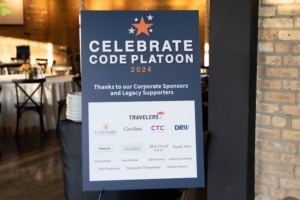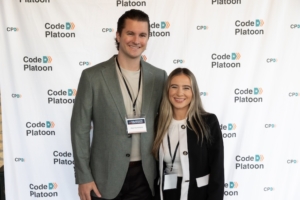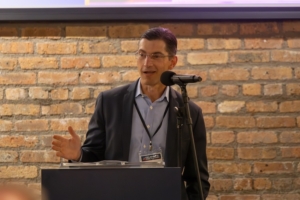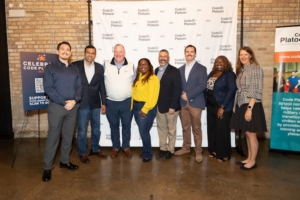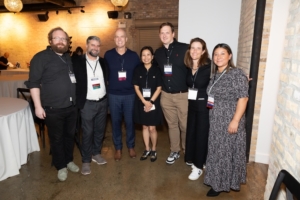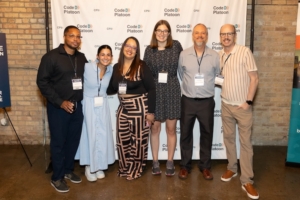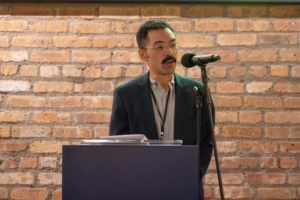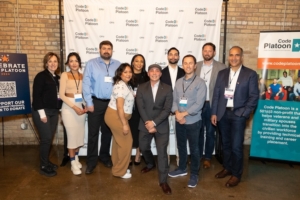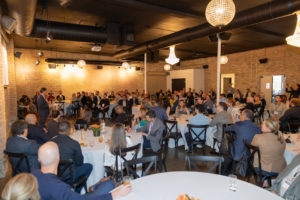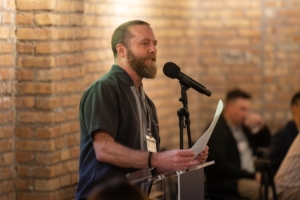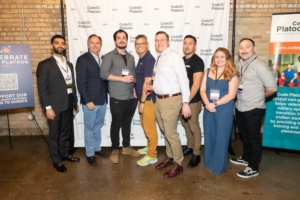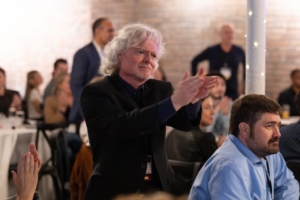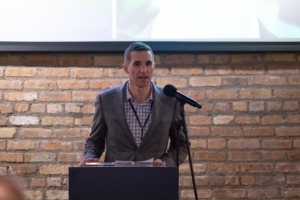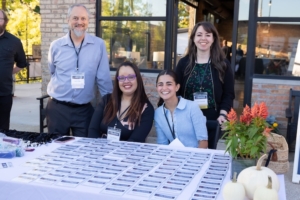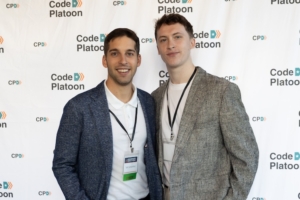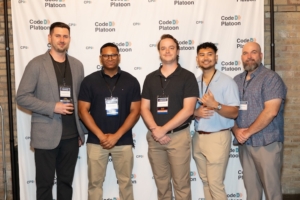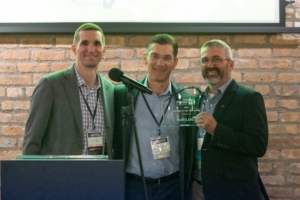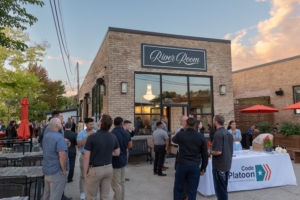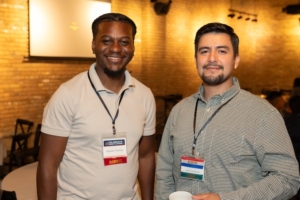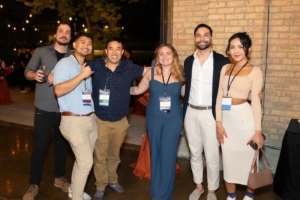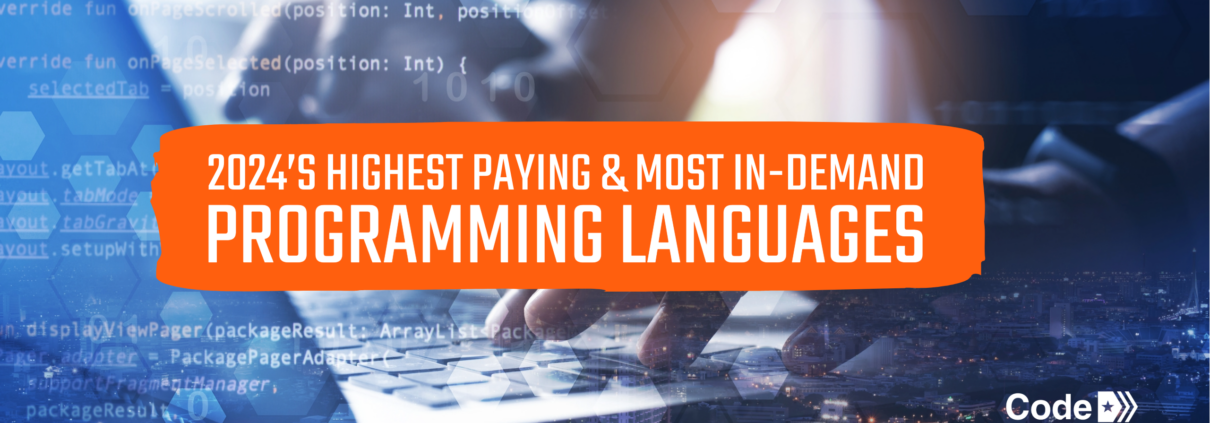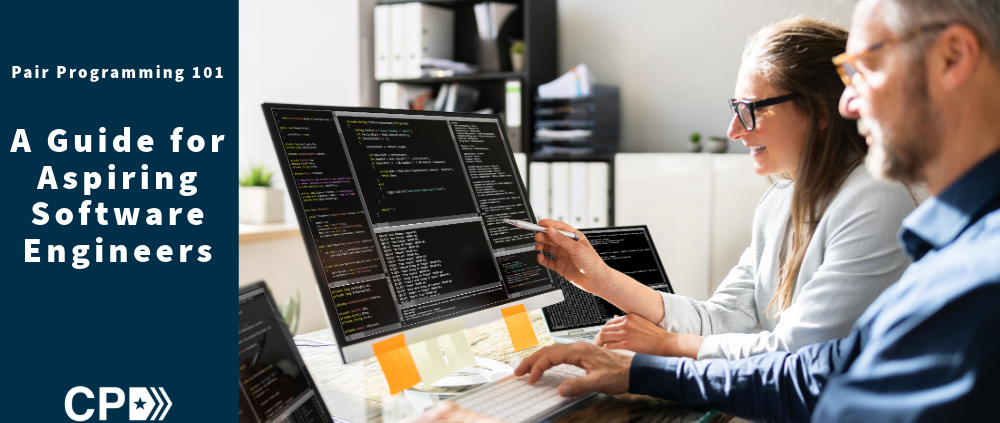Code Platoon Graduate Outcomes 2024
Code Platoon is committed to supporting Veterans, Servicemembers, and military families as they transition into tech careers. Over the past year, we’ve seen a slight dip in our six-month and one-year employment rates. Still, our graduates continue to leverage their skills and resilience to secure software engineering roles with a median starting salary of $80,000.
Our graduates’ continued success speaks volumes about the strength of our approach. Our flexible learning options and dedicated support have helped Veterans and their families transition smoothly into new careers.
“Code Platoon continues to be the go-to path for Veterans and military spouses to break into tech,” Rod Levy, Executive Director of Code Platoon, says. “We’re always evolving our curriculum and career services to keep pace with the ever-changing tech landscape, ensuring our graduates are ready to hit the ground running.”
Code Platoon Graduate Outcomes 2024
- In 2024, 61% of Code Platoon graduates secured jobs in tech within six months of completing the program, with a median starting salary of $80,000.
- One year after graduation, that placement rate increases to 72%
- The median salary jumps to $102,000 after two years in the industry.
- Code Platoon continues to be recognized as a top coding bootcamp by Course Report and SwitchUp. This year, we also earned new designations as the #1 Best Coding Bootcamp of 2024 by College Consensus and a Military Friendly School by VIQTORY.

In-Demand Skills Employers Seek
Code Platoon graduates excel in tech because they master the skills employers demand. Our Full-Stack Software Engineering curriculum covers essential programming languages like Python and JavaScript, along with popular tools such as Docker, React, and PostgreSQL. This year, we added artificial intelligence training to our core curriculum, equipping students with one of the hottest skills in software engineering today. Our specialized DevOps and Cloud Engineering training also dives into continuous integration, configuration management, and automation—ensuring graduates can make an immediate impact in their new roles.
“In my seven years of tech experience, practical knowledge is the biggest asset. Nobody I’ve worked with has treated me differently because I don’t have a degree.” James, an Army National Guard Veteran and Technical Team Lead at Procore Technologies says.
Navigating the Job Market with Confidence
While the tech industry has seen shifts and challenges, Code Platoon graduates continue to stand out because of their unique combination of in-demand technical skills and lived experience from their military backgrounds, including discipline, leadership, and problem-solving. This combination continues to make them highly sought after by our corporate and hiring partners, including Caesars Digital, Travelers Insurance, and Cecilian Partners.
As the tech landscape evolves, our comprehensive Career Services help graduates take on the job search with a clear strategy and well-prepared materials. Our dedicated Career Services team provides personalized support, including 1-on-1 mentorship, resume workshops, LinkedIn optimization, and mock interviews, preparing our graduates to present their military-to-tech transition stories to future employers.
“Code Platoon prepared me for the job market better than a degree,” Megan, a Navy Veteran and Software Engineer at DRW, says. “The program gave me a good sense of communication skills and how to explain my work experience.”
Companies that Hire Code Platoon Grads





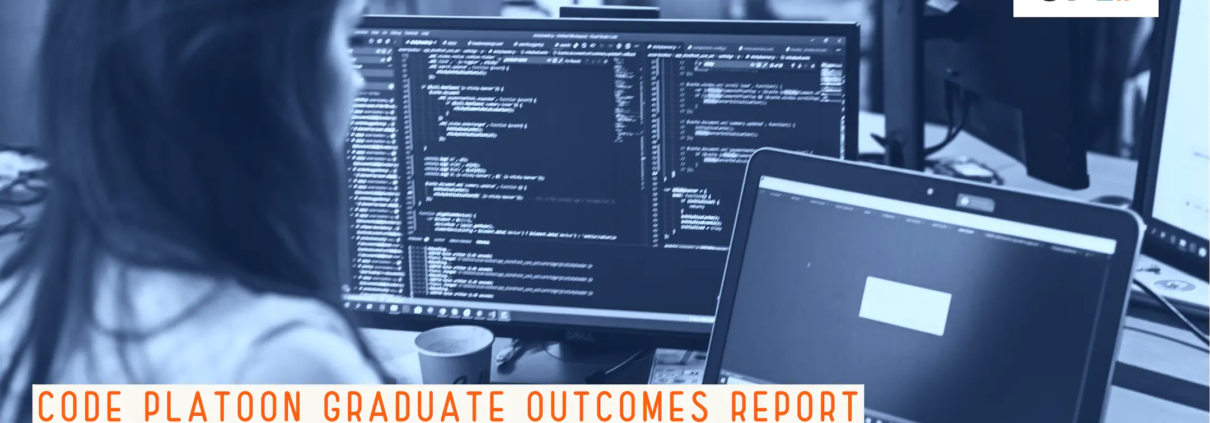

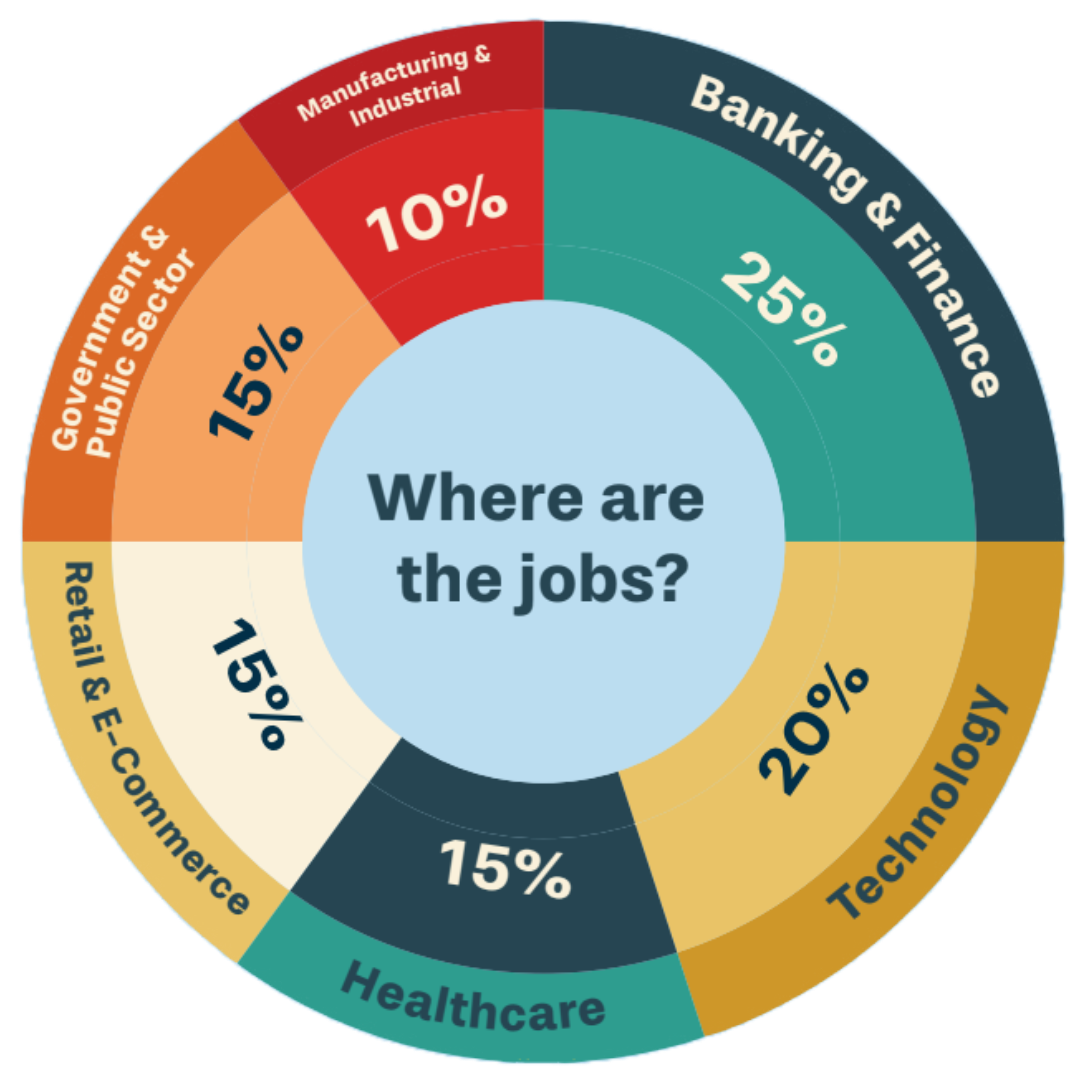

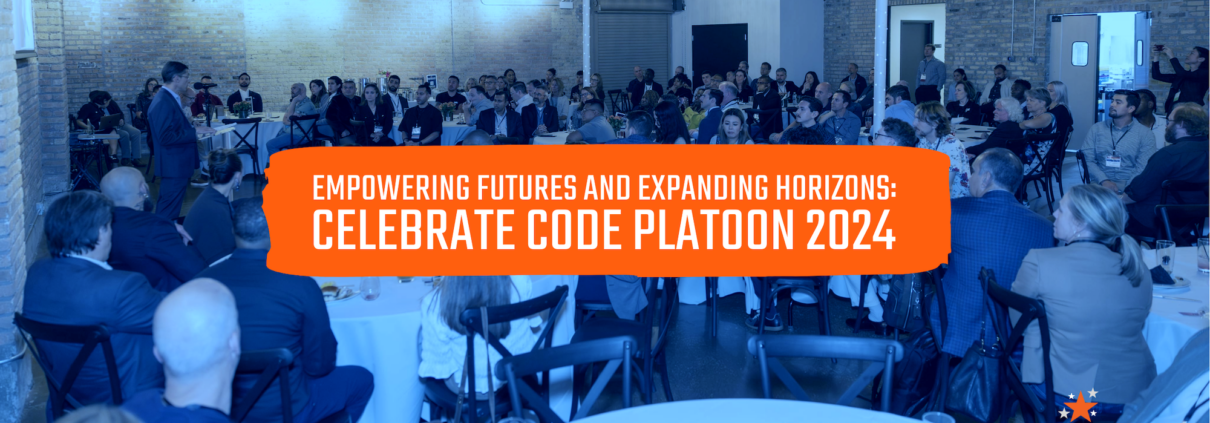
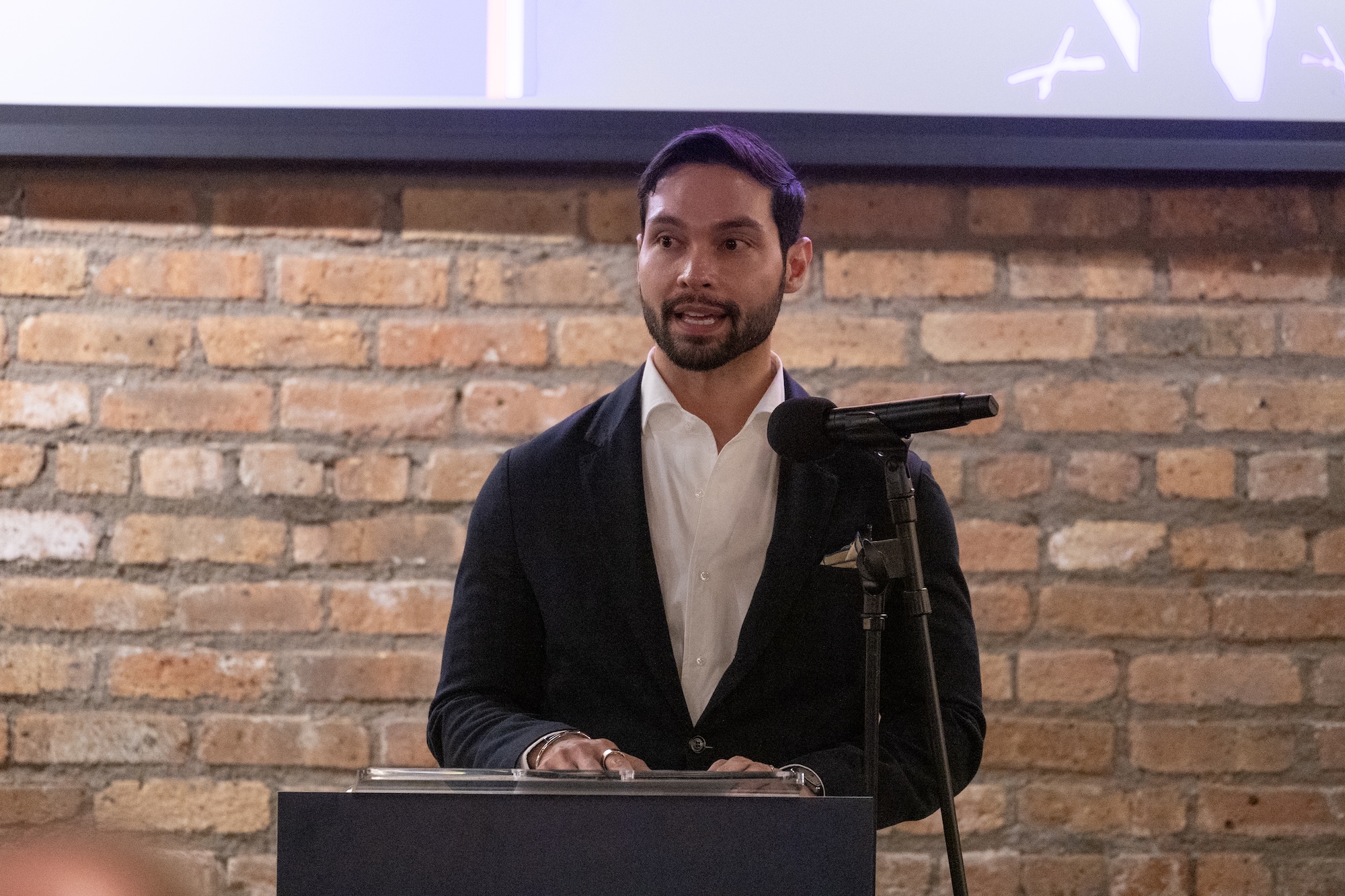 “I come from a background in liberal arts and business, so I wouldn’t be where I am today without the strong technical foundation I built at Code Platoon… Code Platoon has grown so much since I first enrolled, and I’m proud to be an alumnus of this incredible program,” Roque Mesa, Army Veteran and Backend Software Engineer at JPMorgan Chase, said.
“I come from a background in liberal arts and business, so I wouldn’t be where I am today without the strong technical foundation I built at Code Platoon… Code Platoon has grown so much since I first enrolled, and I’m proud to be an alumnus of this incredible program,” Roque Mesa, Army Veteran and Backend Software Engineer at JPMorgan Chase, said.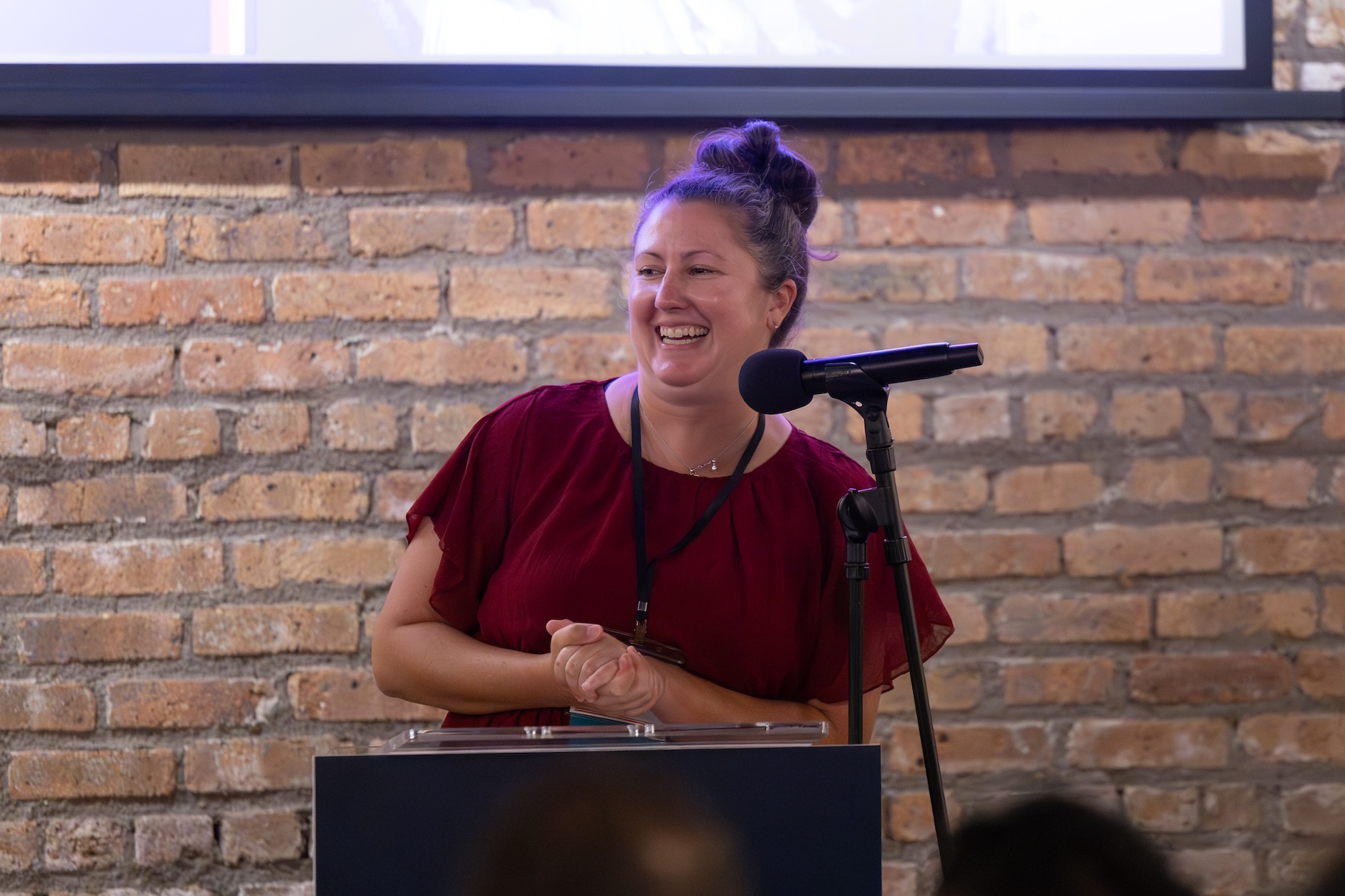 “Code Platoon gave me the opportunity to support my family in more ways than I imagined… I can be present for my children while still providing for my family. This would have never been possible without the foundation that Code Platoon provided me,” Tressa Sharma, Army Veteran and Software Engineer at Bodhi, shared.
“Code Platoon gave me the opportunity to support my family in more ways than I imagined… I can be present for my children while still providing for my family. This would have never been possible without the foundation that Code Platoon provided me,” Tressa Sharma, Army Veteran and Software Engineer at Bodhi, shared.
